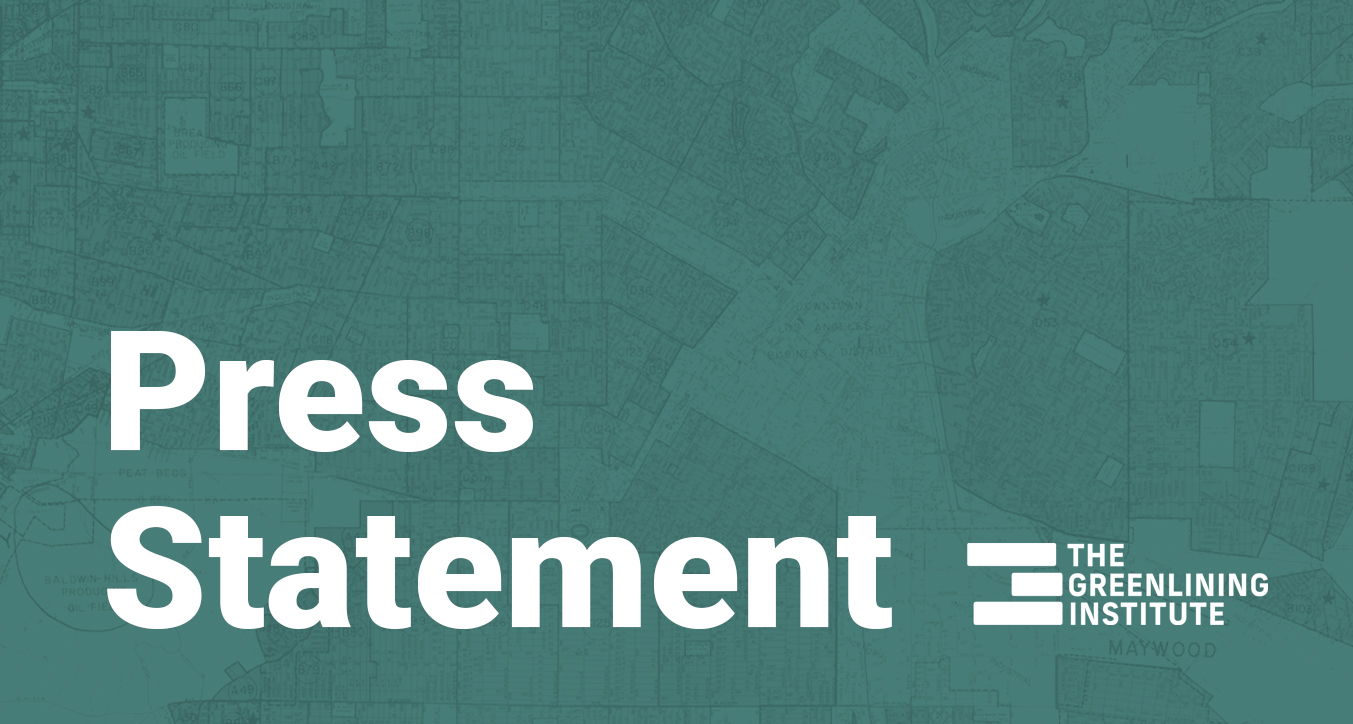New Report: Will the Self-Driving Vehicle Revolution Mean Transportation Heaven or Hell?

Media Contact
Danielle Bell
SENIOR PROGRAM MANAGER FOR MEDIA RELATIONS
media@greenlining.org danielle.bell@greenlining.orgContact: Bruce Mirken, Greenlining Institute Media Relations Director, 510-926-4022; 415-846-7758 (cell)
OAKLAND, CALIFORNIA – Three simultaneous revolutions—electrification, vehicle sharing, and self-driving, autonomous vehicles—are poised to radically change transportation. A new report from The Greenlining Institute, Autonomous Vehicle Heaven or Hell? Creating a Transportation Revolution that Benefits All is the first in-depth analysis of a wide range of mobility, health, and economic implications of these revolutions for marginalized groups like people of color, the poor, the elderly, and those with disabilities.
“If we let the market make key decisions without regulation, we’re headed toward transportation hell – personal autonomous vehicles just for the rich, congesting our streets and leaving others stuck with more traffic, longer commutes and deteriorating public transit,” said lead author Hana Creger, Greenlining’s Environmental Equity program manager. “To get to a transportation heaven that’s designed for all people – less traffic, safer streets, cleaner air, more livable communities and high-quality, affordable mobility – government at all levels will have to act. Funny as it may sound, the arrival of self-driving cars means we can’t be asleep at the wheel.”
Key findings of the report include:
- A “heaven” future would center on FAVES – fleets of autonomous vehicles that are electric and shared – improving mobility for all, cutting traffic and pollution while enabling space now wasted on parking to be put to productive use.
- Even with FAVES, we must still prioritize the healthiest, most sustainable options like walking, biking and carbon-free public transit.
- Ensuring that marginalized groups aren’t left out will require specific policy interventions to:
- Disincentivize personal autonomous vehicles and promote clean, shared transportation models – FAVES – via economic carrots and sticks such as equitable road pricing that waives fees for low-income people.
- Target economic opportunities and community benefits to marginalized populations.
- Ensure fair labor practices and a Just Transition for truck and bus drivers and other workers who will be displaced by self-driving vehicles.
- Ensure that autonomous and shared vehicle services are available in low-income communities and priced affordably.
- Provide equal access to FAVES for all marginalized populations as well as booking and payment models that are workable for those without smartphones or internet access.
“The companies rushing to build and deploy self-driving cars will think only of profits unless we push them to do more,” Creger said. “We can have a true transportation revolution that cleans our air, unclogs our streets, provides high-quality jobs, and makes life better for all, especially those who have the least, but we won’t get there without rules to make the industry move in the right direction.”


